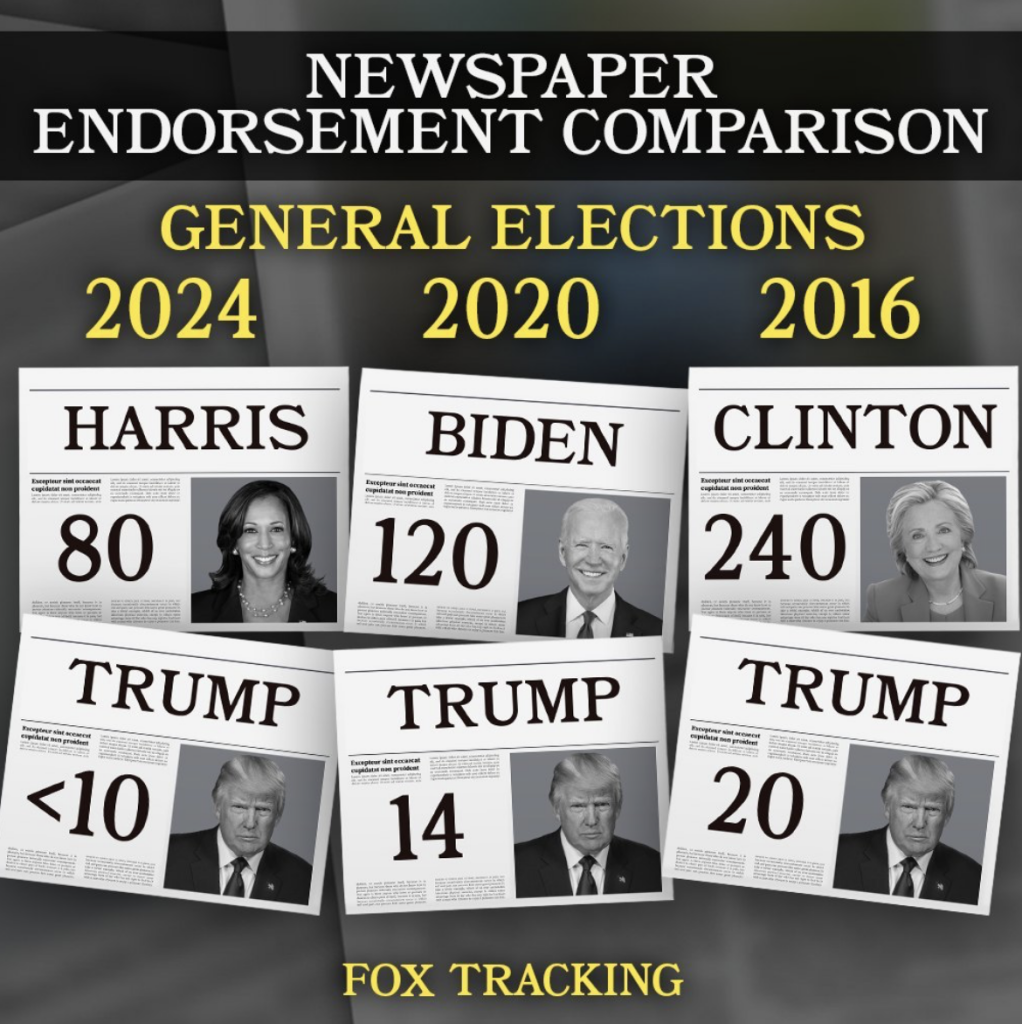The Washington Post, renowned for its historic Watergate revelations, made waves by declining to endorse either Donald Trump (78, R) or his opponent Kamala Harris (60, D) for the upcoming election. The decision was a shocker, as many anticipated a pro-Harris endorsement due to the paper’s liberal slant. Since 1976, The Post has endorsed Democrats in every election except 1988.

Was Jeff Bezos Pulling the Strings?
Speculation quickly arose that the non-endorsement decision was influenced by the paper’s owner, Jeff Bezos (60), founder of Amazon and the world’s second-richest man with a fortune of $205 billion. Bezos purchased The Washington Post in 2013 for $250 million, leading some to suspect his involvement.
However, publisher Will Lewis (55) attempted to dispel these rumors, asserting that Bezos had no role in the decision. “We are an independent newspaper and believe in supporting our readers’ ability to form their own opinions,” Lewis stated, insisting that the choice was his alone.
Backlash from Harris Supporters
The decision ignited outrage among liberal Americans and Harris supporters. Senior editor and columnist Robert Kagan (66) resigned in protest, accusing Bezos and Trump of engaging in a “quid pro quo.” Kagan claimed that Bezos had squashed a pro-Harris editorial to curry favor with Trump in hopes of future government contracts for his space company, Blue Origin. Kagan denounced this alleged “backroom deal” and warned of “looming censorship” if Trump were re-elected.
Woodward and Bernstein Speak Out
Legendary Watergate journalists Bob Woodward (81) and Carl Bernstein (80) also voiced their disappointment, arguing that the decision ignored the paper’s substantial evidence on “the threat to democracy posed by Donald Trump.” They publicly criticized the editorial stance on CNN, emphasizing the importance of standing against Trump.
Staff Outrage and Subscriber Fallout
Within The Washington Post newsroom, tensions ran high. “Editors are shocked, angry, and surprised,” an insider revealed. In response, over 2,000 readers canceled their subscriptions within 24 hours.
Similar Drama at the Los Angeles Times
Meanwhile, a similar uproar occurred on the West Coast at the Los Angeles Times, another liberal-leaning paper that also opted out of a presidential endorsement. Owner Patrick Soon-Shiong, a biotech billionaire who acquired The Times in 2018 for $500 million, was suspected of influencing the decision. However, his daughter, progressive activist Nika Soon-Shiong (31), offered an alternative reason: Harris wasn’t endorsed due to her perceived insufficient criticism of Israel in the Gaza conflict – suggesting she wasn’t “left enough.”
Bezos and Trump’s Rocky Past
Despite the current allegations, Bezos and Trump were previously at odds. During Trump’s first term, Amazon claimed in a 2019 lawsuit that Trump’s “inappropriate pressure” cost the company a lucrative Pentagon cloud computing contract, allegedly due to Trump’s hostility toward Bezos, whom he considered a “political enemy.”
In a world where media and politics collide, The Washington Post and Los Angeles Times are now at the center of an unfolding drama, raising questions about journalistic independence and the complex entanglement of media, power, and influence.